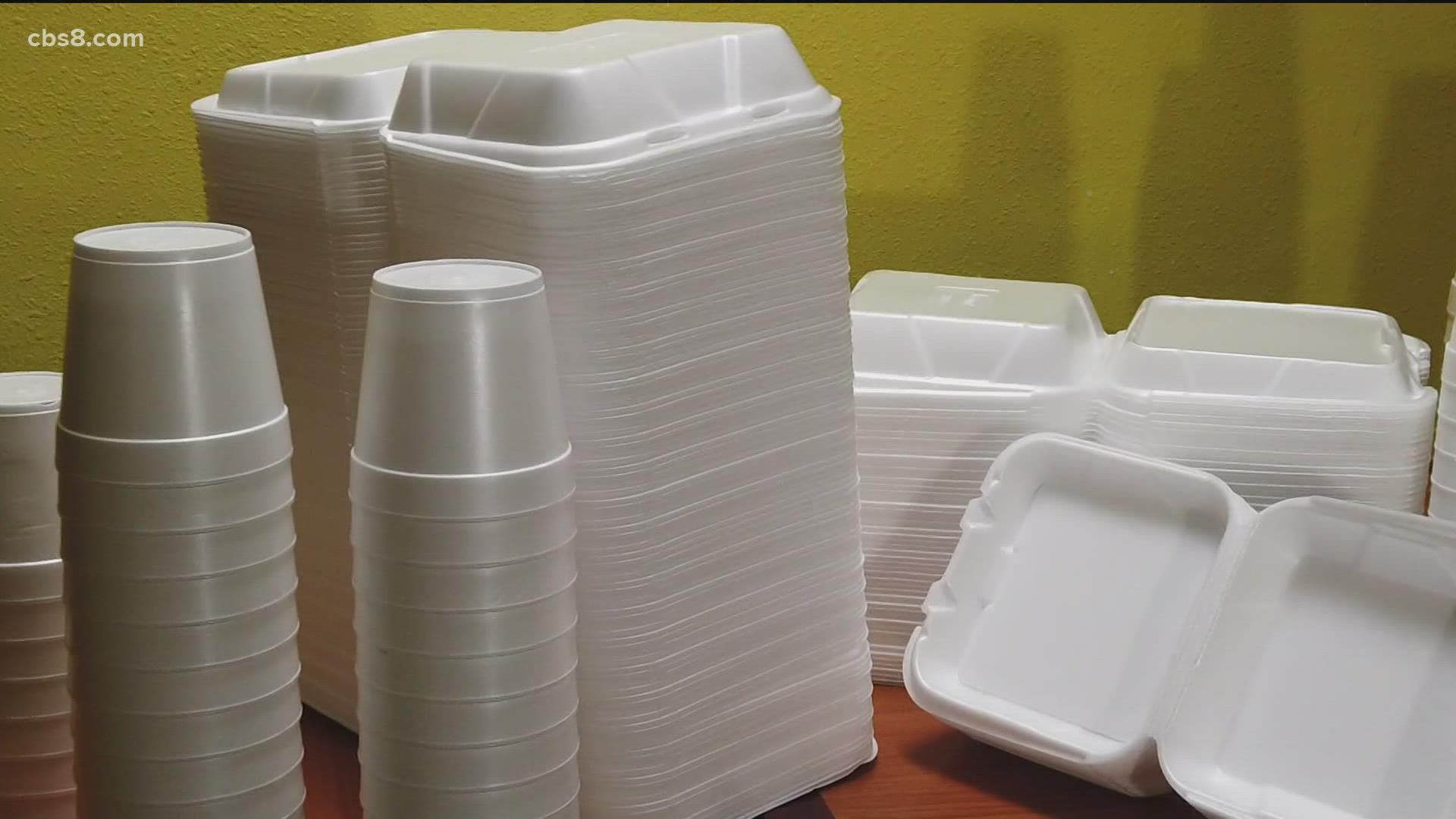SAN DIEGO — Californians heading to the polls this November will have a chance to reduce the amount of plastic waste polluting local waterways and clogging landfills.
You'll get to vote on a new ballot measure that cuts down on the use of single-use plastics, and also attaches a fee to produce them.
Opponents say that this initiative could devastate California's working families.
For the past several years, attempts to reduce single-use plastics have failed to pass the state legislature.
This time, though, it will be up to California voters to decide.
"This ballot measure represents what the legislature wouldn't do, which is basically to take on the packaging industry," said Mark Murray, executive director of Californians Against Waste, a co-sponsor of this measure.
This ballot measure would impose a one-cent fee on single-use plastic packaging items; require single-use plastic packaging and food ware to be recyclable, reusable or compostable by the year 2030; and also require single-use plastic production to be reduced by at least 25% by that same deadline.
"The idea behind this ballot measure is that if a particular kind of plastic is going to continue to exist, it has to be part of a closed-loop recycling system," Murray told CBS 8. "We can't ship it off to China, we can't ship it to India and just let them deal with it."
Currently in California, less than 15% of single-use plastics are recycled, and single-use plastics make up about half of all plastic waste, according to Californians Against Waste.
"The untold story right now is, what is going to be the human health impact?" Murray added.
Opponents of this measure, though, say that this would have a significant economic impact on Californians already struggling to make ends meet.
"We hope that voters understand that this is one of the largest tax increases in California history," said Brooke Armour, vice-president of the California Business Roundtable, which is a co-chair of the ballot measure's opposition committee.
"It amounts to more than $900 per family per year that they'll pay on average for these programs," Armour told CBS 8.
"More than that, it's a $9.3 billion tax increase," she added. "And when you have inflation, when you have the cost of living and gas prices at six dollars a gallon, and a lot of uncertainty in our economy, the last thing that working families need right now are more costs at the grocery store, especially on fresh fruit and vegetables and other essential items that we need every day."
"I don't think the public is confused about what this issue is about," said Murray.
He said that the point of the measure is not to have consumers pay more, but to substantially reduce the amount of packaging that's used.
"If we're successful at cutting the amount of plastic packaging in half, every consumer is going to save money at the grocery store," he added.
To take a closer look at the specific economic impact numbers and how they were calculated, click here.
To see the details of the ballot measure, click here.
WATCH RELATED: Trash and debris from homeless encampments fill storm drain in El Cajon (April 2022)

